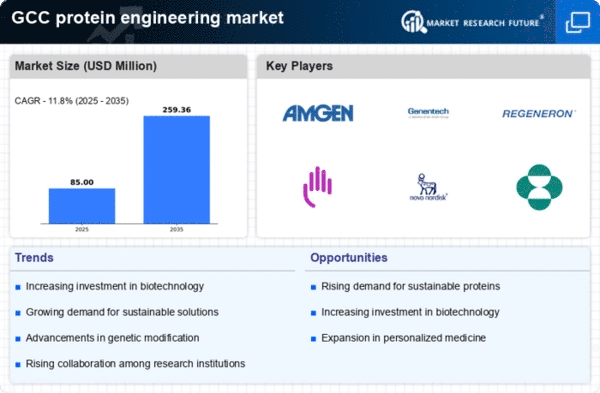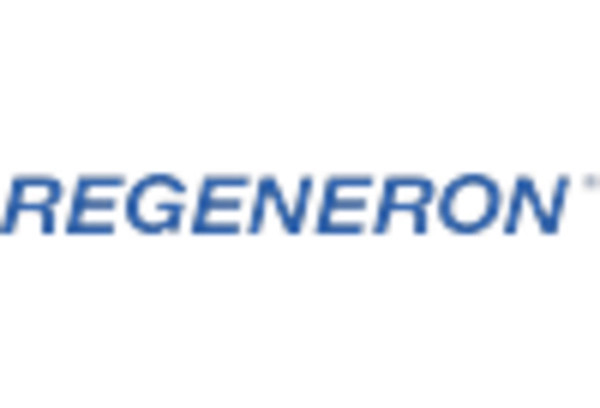Government Initiatives and Funding
Government initiatives in the GCC are playing a crucial role in propelling the protein engineering market forward. Various national health strategies emphasize the importance of biotechnology and protein engineering in enhancing healthcare outcomes. For instance, funding programs aimed at supporting research and development in this field have increased significantly, with allocations reaching millions of $ annually. These initiatives not only foster innovation but also encourage collaboration between academic institutions and industry players. As a result, the protein engineering market is expected to witness accelerated growth, with a focus on developing novel therapeutic proteins and enzymes that address local health challenges.
Rising Demand for Biopharmaceuticals
The protein engineering market is experiencing a notable surge in demand for biopharmaceuticals, driven by the increasing prevalence of chronic diseases and the need for innovative therapies. In the GCC region, the biopharmaceutical sector is projected to grow at a CAGR of approximately 8% over the next five years. This growth is largely attributed to advancements in protein engineering techniques, which enable the development of more effective and targeted treatments. As healthcare systems in the GCC invest in modernizing their facilities and expanding their capabilities, the protein engineering market is likely to benefit from this trend, as biopharmaceuticals become a cornerstone of therapeutic strategies.
Growing Focus on Personalized Medicine
The protein engineering market is increasingly aligned with the growing focus on personalized medicine within the GCC. This approach tailors medical treatment to individual characteristics, needs, and preferences, which is facilitated by advancements in protein engineering. The market is witnessing a shift towards the development of customized therapeutic proteins that can effectively target specific patient populations. This trend is supported by the rising awareness among healthcare providers and patients about the benefits of personalized therapies. As a result, the protein engineering market is likely to expand, with an estimated growth rate of around 10% in the coming years, reflecting the increasing demand for tailored healthcare solutions.
Increased Collaboration Between Sectors
The protein engineering market is benefiting from increased collaboration between various sectors, including academia, industry, and government. In the GCC, partnerships are forming to leverage expertise and resources, fostering innovation in protein engineering. These collaborations often result in joint research projects, technology transfers, and shared facilities, which enhance the overall capabilities of the protein engineering market. As stakeholders recognize the value of working together, the market is likely to experience accelerated growth, with collaborative efforts leading to the development of cutting-edge technologies and applications that address pressing health challenges.
Advancements in Research and Development
Ongoing advancements in research and development are significantly impacting the protein engineering market. The GCC region is witnessing a surge in academic and industrial research initiatives aimed at exploring novel protein engineering techniques. These advancements are not only enhancing the efficiency of protein production but also improving the quality and functionality of engineered proteins. With research funding increasing, the market is expected to see a rise in innovative applications, including enzyme engineering and synthetic biology. This focus on R&D is likely to drive the protein engineering market forward, as new discoveries pave the way for groundbreaking therapeutic solutions.

















